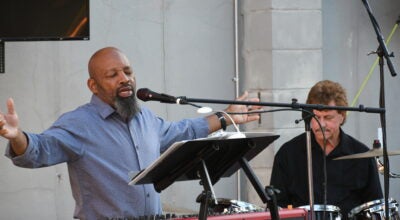City council crosses fingers for clear LOST tax legislation
Published 12:41 am Wednesday, October 16, 2013
In attempt to continue to collect a Local Option Sales Tax despite a dispute as to what percentage they will receive of the collection overall, the Bainbridge City Council approved a resolution Tuesday to keep their collection percentage as status quos — for now at least.
City Manager Chris Hobby and Bainbridge Mayor Edward Reynolds both stated part of the agreement to continue with a current certificate means they agreed with Decatur County to continue on in negotiations later in time, when the legislative session begins again.
“We are really filing a certificate, and even though it has a 10-year shelf life, we are saying by signing it that we are going to re-enter this negotiation at some point and try and reach an equitable end to this,” Hobby said about the LOST certificate that can be renegotiated every 10 years, once the census has been conducted.
The council sat in silence when Mayor Reynolds asked for a motion to approve the certificate — a certificate the city has spent more than $25,000 on in the last year by paying consulting fees and attorneys in trying to renegotiate with Decatur County.
“There has just been a lot spent to get to where we are now,” Post 5 Councilwoman Roslyn Palmer said about the certificate approval.
Post 1 Councilwoman Glennie Bench has worked heavily in negotiations for the last year, working with the mayor and those on the Decatur County Commission to reach a settlement. She said following Tuesday’s meeting the county either needs to start to deliver their end of the service delivery strategy agreed upon in 2000, or the LOST figures should be reallocated — granting the city a higher percentage.
Bench said the state legislature should come back with specific rules and criteria for the LOST tax determination, and present a formula, or otherwise expect for municipalities to continue to argue.
“We are hoping the legislature, when they reconvene, will set up some direct formula,” Bench said. “We will also move forward with looking at the service delivery strategy. It’s basically an agreement between us and the county as to what services and goods that each of us will provide for the taxes we collect and so that really forms the foundation for why we were disputing LOST tax allocation to begin with. Because the county has not upheld our inter-government service delivery agreement over the years.”
She said that is why the city feels it is entitled to a greater allocation of the LOST tax than the 41 percent the city receives currently.





